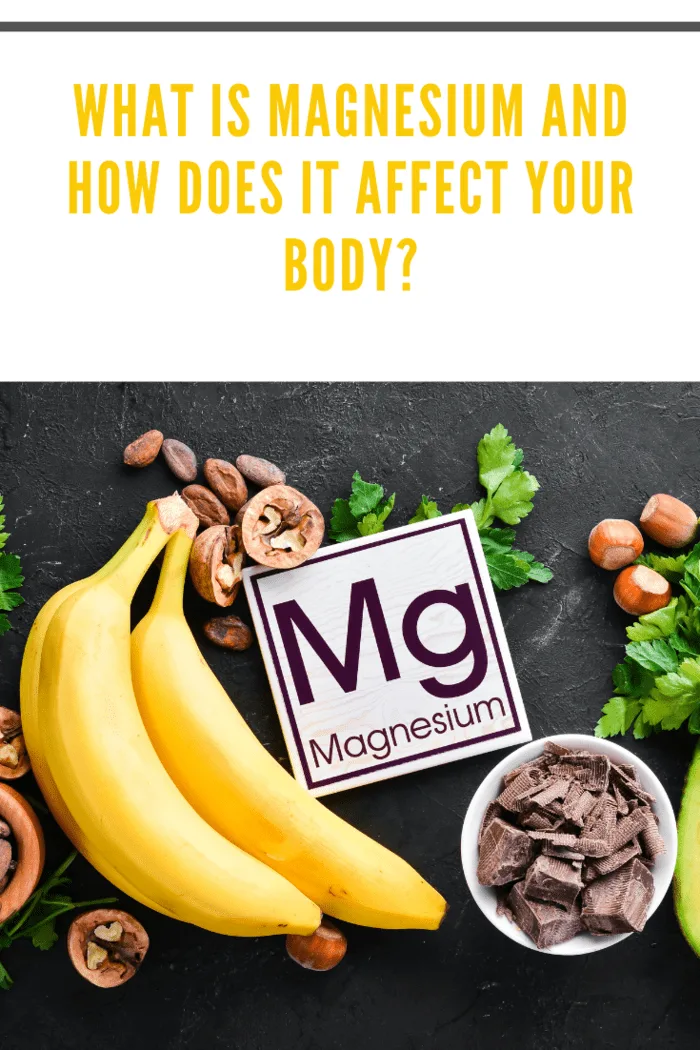This article will go over why we need magnesium in our body, including how you can boost levels if deficient.
Magnesium is an essential trace mineral our body needs to function correctly and the necessary vitamins and nutrients.
What is the relation between this and how it can help our body’s function?
Our body needs magnesium for many things but mostly as a trace mineral. When there is a shortage of magnesium in our bodies, it can cause many things to malfunction.
It can cause our nerves not to work correctly or cause the muscles in our body to relax. Many different things can happen when there is a lack of magnesium in our bodies.
Magnesium is one of the main trace minerals that our body needs. When there is a fair amount of it in our body, it can help us with muscle relaxation.
It can also make our nerves work correctly, and it can also make it easier for our brain to function as well.
All of these things are necessary to be a healthy person, so if you think that you may not have enough of it in your body, you might want to consider taking magnesium supplements to ensure that you are getting everything you need.

Signs of magnesium deficiency
This mineral has several deficiency symptoms, ranging from simple to severe.
They include:
♥ Tremors
♥ Poor coordination
♥ Muscle spasms
♥ Loss of appetite
♥ Personality changes
♥ Nystagmus (A type of involuntary eye movement)
According to Medline Plus, one of the most prevalent magnesium deficiency symptoms is a lack of energy.
You might feel fatigued, sluggish, or just not feeling your best.
This can be a symptom of low energy levels, so if you have a large amount of fatigue or weakness, it may be time to see a doctor.
Another way deficiency symptoms manifest themselves is by causing your muscles to ache.
Another common magnesium deficiency symptom is a loss of appetite. A low level of this mineral can make it difficult to lose weight or keep it off, but it can also cause you to feel more fatigued at times.
This fatigue can range from mild to severe, so don’t be alarmed if you’re suffering from low mineral levels.
How to boost magnesium levels
These days, we’re all trying to eat healthier and live longer.
That means we’re also trying to supplement our diets with as many beneficial minerals as possible.
Supplementation
Magnesium is one mineral that we can’t get enough of; that’s why the most common magnesium deficiency symptoms are muscle cramps and fatigue.
It’s also why doctors often prescribe magnesium supplements to help those suffering from low mineral levels or other ailments. Often a simple multivitamin will help. However, it is best if you take a dedicated magnesium supplement first. This is because you may also be deficient in other vitamins or minerals, and taking a multivitamin will not help you discover if something is further wrong with you.
To help keep your magnesium levels balanced, you might also consider taking a transdermal magnesium supplement. A transdermal patch is situated on the skin, which absorbs the mineral throughout the day.
Anyone can use these patches–they don’t even need a prescription; however, as with anything related to health, you should seek advice from your doctor first.
They work by releasing small amounts of magnesium directly into the muscles. These products have been determined to improve muscle cramps and fatigue and help with constipation and various other conditions.
Supplements are perhaps the most common method of boosting magnesium and other mineral levels; however, you can also increase them naturally by eating a healthy diet.
Natural methods
One of the simplest ways to get more magnesium is by eating more magnesium-rich foods. Many people think magnesium-rich foods must be just heavyweights of fish and meats, but many magnesium-rich foods taste great!
For example, vegetables and legumes are rich sources of minerals.
Grains, nuts, whole grains, beans, and seeds are also good.
There are even naturally occurring sources of magnesium, like seawater and rainwater.
Summary
Magnesium is an essential mineral that is vital for normal bodily function. However, many people become deficient in it for one reason, which has adverse effects on health.
Boosting magnesium levels is not difficult and often entails changing diet or taking a supplement.
